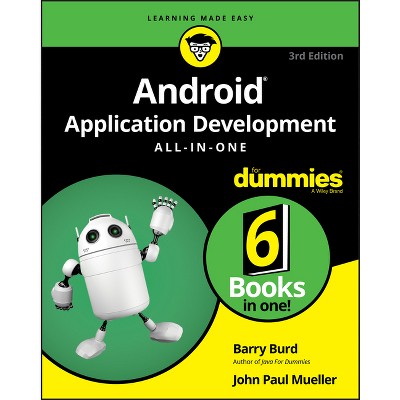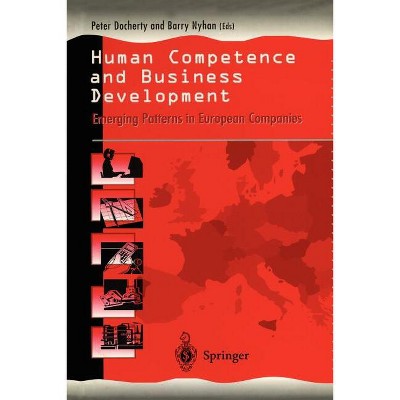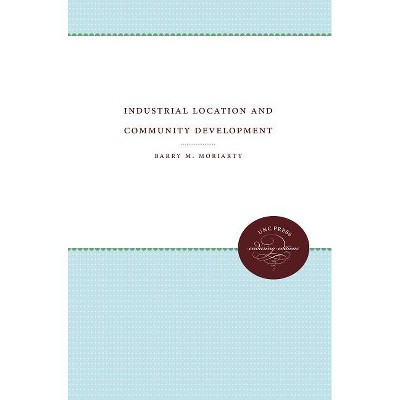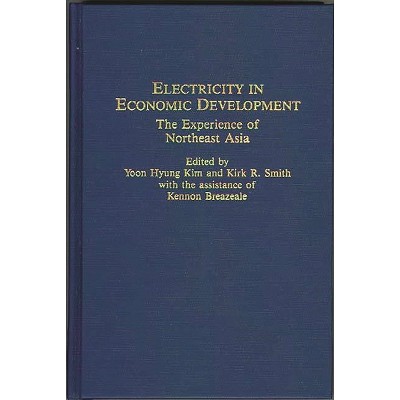Sponsored

Synthetic Fuel Technology Development in the United States - by Barry Bozeman & Michael Crow (Hardcover)
In Stock
Sponsored
About this item
Highlights
- Direct coal liquefaction, a synthetic liquid fuel process, is one of the major developmental alternatives for meeting the anticipated fuel demands for the twenty-first century.
- About the Author: MICHAEL CROW is Director of Science Policy and Research, Iowa State University.
- 187 Pages
- Science, Energy
Description
About the Book
Direct coal liquefaction, a synthetic liquid fuel process, is one of the major developmental alternatives for meeting the anticipated fuel demands for the twenty-first century. This work provides a retrospective assessment of past attempts in this century to develop synthetic liquid fuel and applies the findings to produce reliable and pertinent data for the future. Retrospective technology assessment, a recent methodological invention, is used by the authors to analyze the past synthetic liquid fuel programs and the reasons for their failures. Bringing to bear four different perspectives--economic, technological, policy, and historical--the authors draw broad conclusions that will help guide the next development effort in the United States.
Book Synopsis
Direct coal liquefaction, a synthetic liquid fuel process, is one of the major developmental alternatives for meeting the anticipated fuel demands for the twenty-first century. This work provides a retrospective assessment of past attempts in this century to develop synthetic liquid fuel and applies the findings to produce reliable and pertinent data for the future. Retrospective technology assessment, a recent methodological invention, is used by the authors to analyze the past synthetic liquid fuel programs and the reasons for their failures. Bringing to bear four different perspectives--economic, technological, policy, and historical--the authors draw broad conclusions that will help guide the next development effort in the United States.Review Quotes
?It has been generally recognized that the demand for liquid fuels (petroleum) will sooner or later outstrip the recoverable earthly resources. It is also well known that liquid fuels can be obtained from coal and that coal resources are more abundant than petroleum reserves. Hence it is obvious to try to obtain commercial quantities of liquid fuel from coal. Although billions of dollars have been spent in the US and elsewhere on this effort, success is lacking. Why? If we were about to embark upon such a development endeavor, we might attempt some formal prospective technology assessment' research to ascertain the prospects of success. If we wish to learn from apparent failures, such as that of coal liquefaction, we should try a retrospective technology assessment' (RTA). Such is the goal of this book. It summarizes the requirements and method of prospective and retrospective technology assessment and applies the latter to the US effort to directly liquify coal, examining economic, policy, and scientific-technological models. In the process, a great deal of technical, economic, and policy history is presented. An attempt is then made to draw conclusions that will have implications for public policy, particularly in the area of large-scale public technology.' The book ends with long appendixes detailing the questions directed to experts in the field, which were the data for the RTA, and with ample notes.?-Choice
"It has been generally recognized that the demand for liquid fuels (petroleum) will sooner or later outstrip the recoverable earthly resources. It is also well known that liquid fuels can be obtained from coal and that coal resources are more abundant than petroleum reserves. Hence it is obvious to try to obtain commercial quantities of liquid fuel from coal. Although billions of dollars have been spent in the US and elsewhere on this effort, success is lacking. Why? If we were about to embark upon such a development endeavor, we might attempt some formal prospective technology assessment' research to ascertain the prospects of success. If we wish to learn from apparent failures, such as that of coal liquefaction, we should try a retrospective technology assessment' (RTA). Such is the goal of this book. It summarizes the requirements and method of prospective and retrospective technology assessment and applies the latter to the US effort to directly liquify coal, examining economic, policy, and scientific-technological models. In the process, a great deal of technical, economic, and policy history is presented. An attempt is then made to draw conclusions that will have implications for public policy, particularly in the area of large-scale public technology.' The book ends with long appendixes detailing the questions directed to experts in the field, which were the data for the RTA, and with ample notes."-Choice
About the Author
MICHAEL CROW is Director of Science Policy and Research, Iowa State University.
BARRY BOZEMAN is Director of the Technology and Information Policy Program, Syracuse University. WALTER MEYER is Director of the Institute for Energy Research, Syracuse University. RALPH SHANGRAW, JR., is Senior Research Fellow, Technology and Information Policy Program, Syracuse UniversityShipping details
Return details
Trending Non-Fiction


















